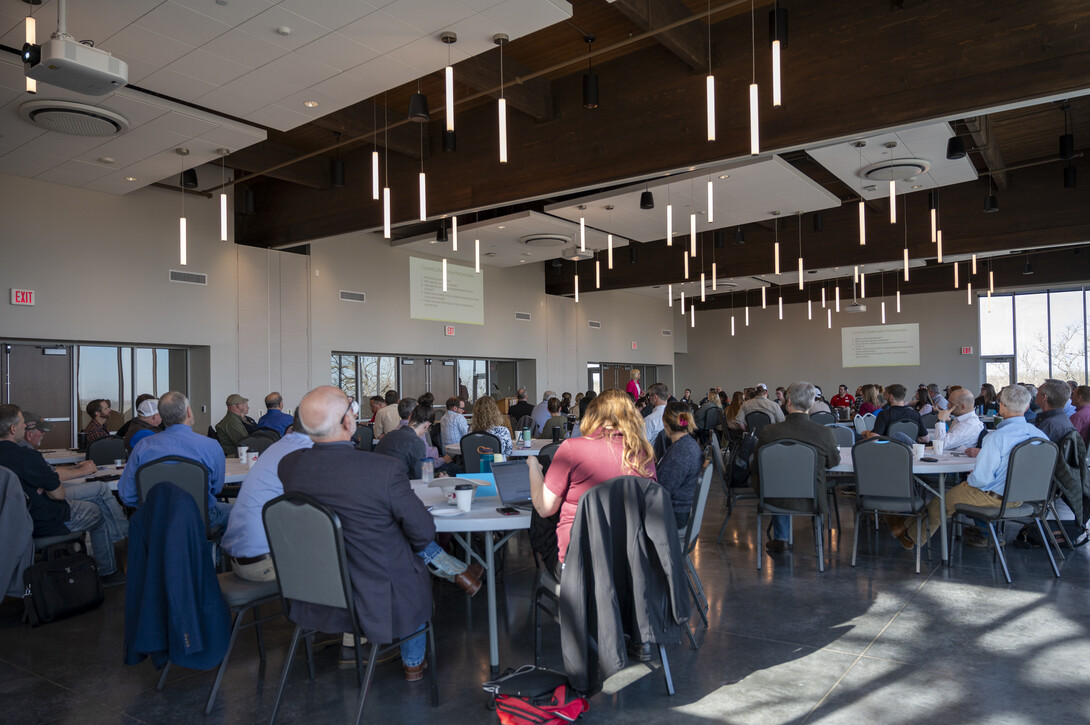
Lincoln, Neb. —Overlooking the iconic Platte River, over 100 natural resource professionals and students met to build and foster new collaborations at the first Natural Resources Conservation Connecting Points Workshop.
The workshop, sponsored by the School of Natural Resources, Institute of Agriculture and Natural Resources and the Nebraska Game and Parks Commission, was developed to help individuals working in the realms of natural resources and conservation to connect with each other and find opportunities to work more efficiently and collaboratively towards solving complex ecological issues.
“Post-Covid, many people are feeling isolated and not as connected as they were in the past. At the same time, we have a lot of early career employees that recently started who are eager to meet other conservation professionals and University students and researchers to address conservation challenges,” said Andrew Little, an SNR assistant professor who spearheaded the event.
Workshop attendees were led through a series of activities to make new connections with colleagues and peers before hearing about collaborative project success stories. During lunch, Derek McLean, dean of the university’s Agricultural Research Division, Mike Boehm, vice chancellor of the Institute of Agriculture and Natural Resources, and Charlie Stoltenow, dean of Nebraska Extension, lauded the benefits of cross-agency collaborations and invited those working outside the school to form university partnerships. The afternoon session included a series of roundtable discussions in which workshop attendees could connect with others based on focused areas of work or interest and share successes, goals and ideas for reaching those goals.
For students – both undergraduate and graduate – who were in attendance, it was a chance to meet with potential future employers and future colleagues.
“This experience was pretty impactful, and I'm grateful that I was able to be involved in it,” said Caitlin Copenhaver, an undergraduate in the School of Natural Resources who attended Wednesday’s event. Copenhaver added that despite the differences in profession or experience, “it was really fulfilling to be able to meet on the common grounds of our shared passion for conservation.”
“I really enjoyed hearing all the different perspectives from everyone in the room, and it was cool to brainstorm with them to create actionable next steps for fostering and growing these conservation connections in the future! I hope we'll be able to have more meetings like this as it was a pretty nifty experience,” she said.
Dr. John Carroll of SNR shares the success of working collaboratively with others inside and outside the University on the Nebraska Flying Squirrel citizen science project.
Little hopes this workshop will be the first of many, with more agencies represented in the coming years. “Ultimately, we will use the feedback generated from participants to expand this event in the future, “ said Little.
“The sky is the limit,” he added. “[This event] was a launching point for new and creative partnerships and ideas to develop collaborative, cross-agency teams around critical conservation needs. The future is bright for conservation in Nebraska.”







